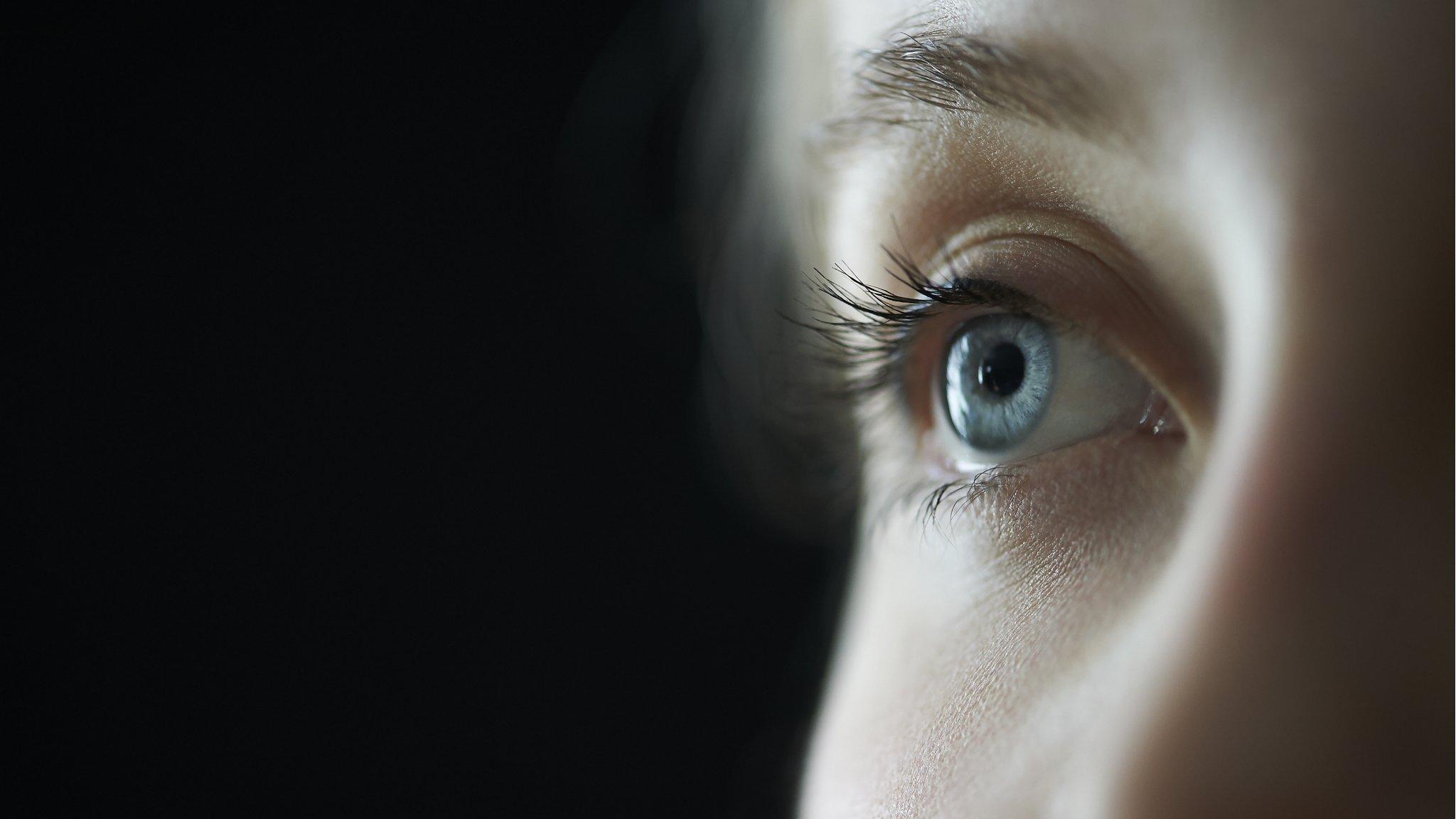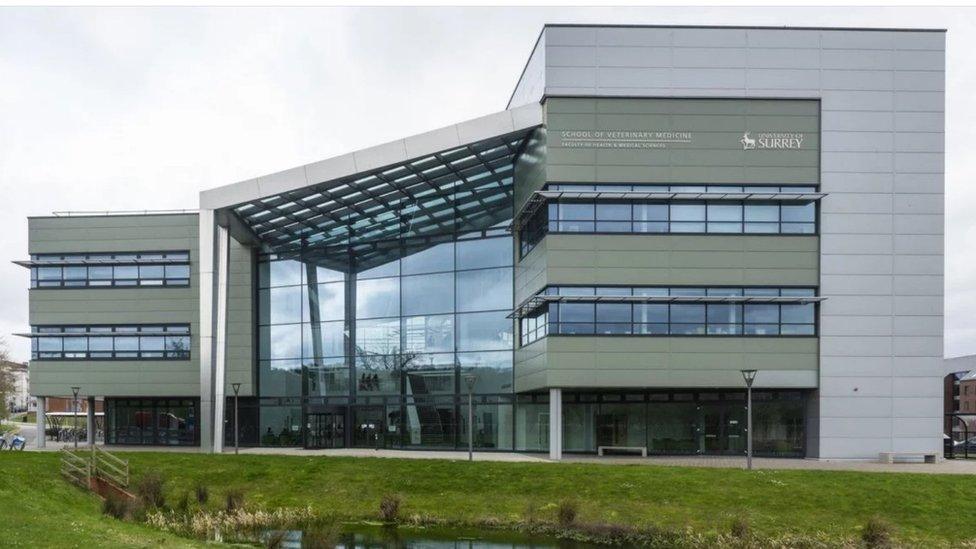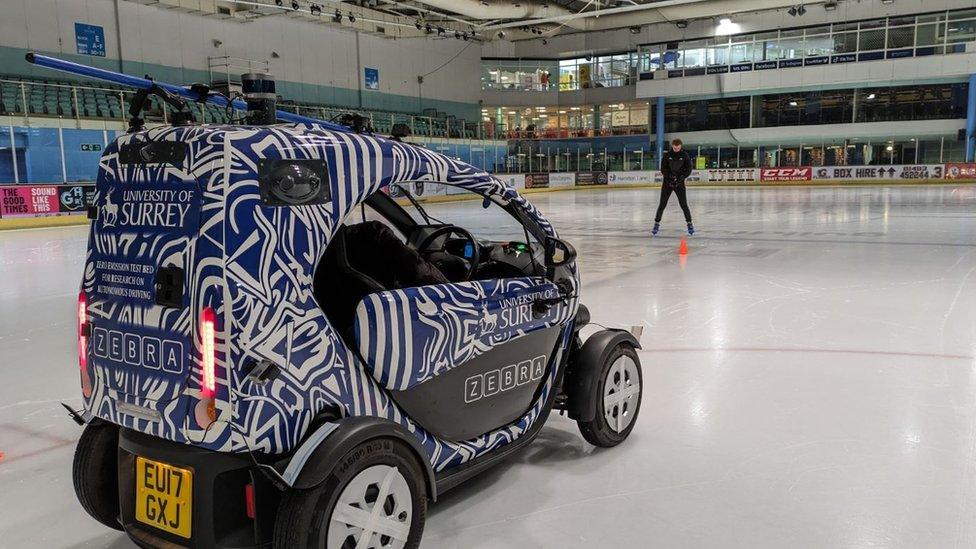University of Surrey research tackles age-related sight loss
- Published

The tiny panels would covert light to electrical signals to carry colour information through to the optic nerve
Tiny "solar panels" at the back of the eye could help patients recover from sight loss, according to research from the University of Surrey.
Scientists believe the panels could one day restore colour vision.
The panels can be printed, like paper, making them cheaper and more accessible.
University researcher Dr Leslie Askew said the research was "really exciting".
"Just like solar panels convert light to electricity, our flexible device sits at the back of the eye, converting light to electrical signals carrying colour information through to the optical nerve," said Dr Askew.
"Previously, this has only ever been achieved in black and white vision, so to be able to restore colour vision is really exciting."
Dr Askew has more than an academic interest in the research. Not only has her mother-in-law experienced sight loss, a recent scan found cells in Dr Askew's own eyes which could lead to the condition in the future.
The findings are patent-pending, but the university hopes they can be used to design an artificial retina to help patients suffering from retinal disease.

Follow BBC South East on Facebook, external, on X, external, and on Instagram, external. Send your story ideas to southeasttoday@bbc.co.uk, external.
Related topics
- Published22 January 2024

- Published22 November 2022

- Published29 November 2023
